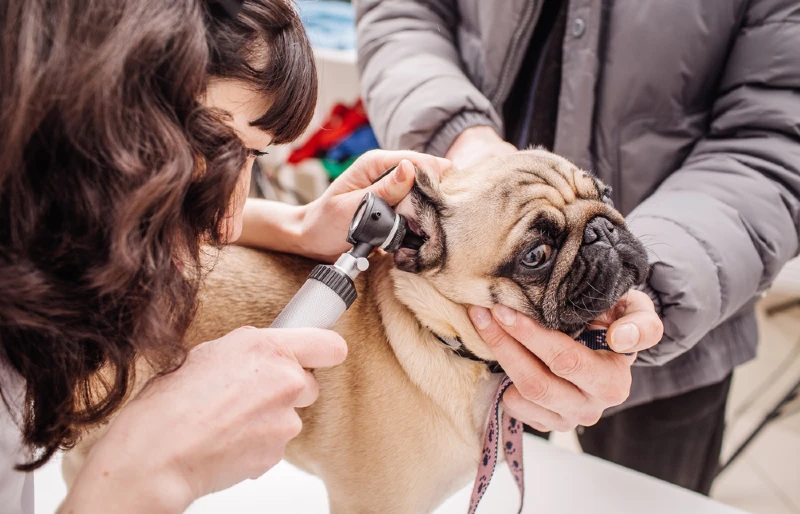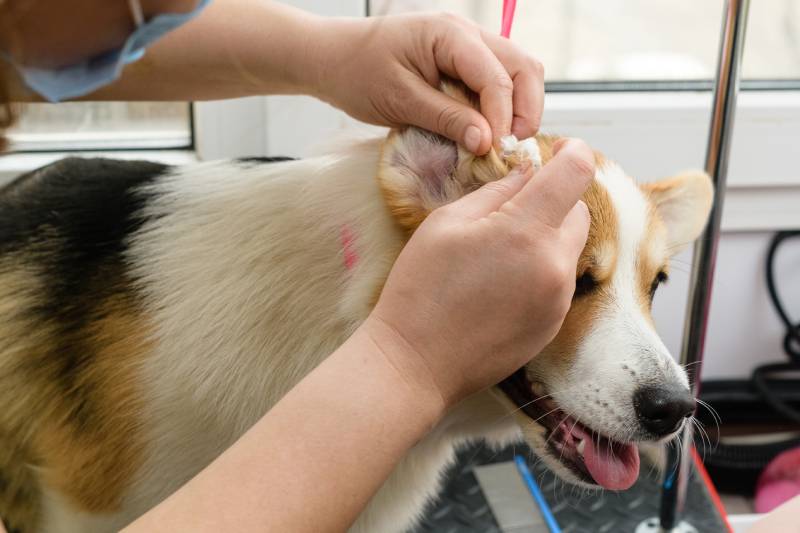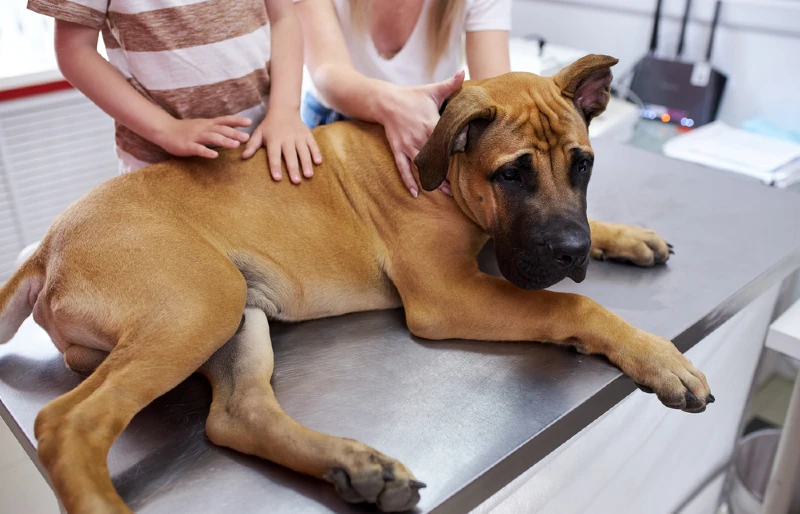What Causes Hearing Loss in Dogs? 9 Vet-Reviewed Factors
Updated on

Dealing with a pet that is deaf or is losing its hearing can be quite emotional. As pet owners, it’s only natural to question why your dog has lost its hearing and if there’s anything you can do to help make them feel better. That’s why we’re here. We want to help you understand what causes hearing loss so you can work closely with your pet’s veterinarian to treat the issue or learn how to bond with your special needs dog.
The 9 Factors of Hearing Loss in Dogs
1. Congenital Hearing Loss
Congenital hearing loss has to do with issues pertaining to the cochlea, or the hearing part of a dog’s inner ear. Congenital hearing loss is often hereditary and permanent. This type of hearing loss is often associated with particular coat colors, especially merle and white coats. Congenital hearing loss is present when a dog is born but doesn’t normally present itself until the pup is between 4–6 weeks old. Certain dog breeds are more prone to this cause of hearing loss including Dalmatians, Bull Terriers, Whippets, English Setters, and Australian Cattle Dogs.

2. Natural Aging
Often called sensorineural hearing loss or presbycusis, aging is another big cause of hearing loss in dogs.1 It develops gradually and is usually bilateral. As your pet ages, changes to the inner ear or auditory nerves will occur. When dogs experience this, normally around 12 to 15 years of age, it is irreversible and results in permanent hearing loss.
3. Ear Infections
Knowing when your dog has an ear infection is quite difficult. Unfortunately, our fur babies simply can’t tell us what’s hurting them. The only way to determine whether a dog has an ear infection is with an exam by the veterinarian. Often, when the infections are bad, hearing loss can be an issue. Fortunately, with proper treatment, your dog can recover from the ear infection and in most cases, get their hearing back.

4. Ototoxicity
There are some medications and chemicals that can damage the senses of hearing or balance as a side effect, which is called ototoxicity. When treating a dog’s ear infection, the medication can enter the middle ear through holes or damage to the dog’s inner ear drum. While this is a rare occurrence, it can still cause temporary deafness in dogs when it occurs. Unfortunately, in certain cases, this type of deafness can become permanent. Ototoxicity can occur not only when medication is applied inside the ear, but also when it is given through injections. This cause of deafness is why experts say you should avoid giving medications to your dog unless recommended by your veterinarian.
5. Noise Trauma
This type of deafness, also called noise-induced hearing loss, occurs in dogs that have been exposed to loud sounds. It has been described in military dogs, hunting dogs, and dogs housed in kennels with high ambient noise levels. The ear has its own mechanism to protect it from loud noises, but if the noise is too loud or percussive, such as gunfire, the protection fails. Hearing loss can be temporary or permanent.

6. Foreign Bodies in the Ear
We often say our dogs are like our children. This is more true than any of us care to admit. Just like kids, dogs can get into things. While they are going about their day exploring and poking their noses where they shouldn’t, foreign bodies can potentially get lodged in their ears. If there is no damage to the ear thanks to this obstruction, hearing is normally restored once the foreign body is removed.
7. Head Trauma
No one wants to see their dog injured, but it can happen. When head trauma is an issue, there is the potential for blood or pieces of fractured bones to reach the middle or inner ear. This can often lead to temporary or permanent deafness.

8. Brain Disease or Tumors
While we don’t like to discuss it, dogs can suffer from serious illnesses such as tumors and brain disease. When this happens, there is a potential for them to lose their hearing. According to the extent of what your dog is suffering, you may find that this type of hearing loss can be temporary or permanent.
9. Parasites
Ear mites are a common issue dogs often suffer from. Fortunately, only in very rare circumstances, especially when the infestation is extreme and left untreated, can dogs suffer from deafness thanks to these parasites. Proper treatment of mites is the best way to relieve your dog from the pain and itching they are suffering and help them hear as they should again.

Conclusion
As you can see, there are several causes for hearing loss in dogs. The most important thing to remember is that you know your dog better than anyone. If you notice they aren’t listening to you, appear to miss sounds they should hear, or do a lot of head shaking and tilting, get them to the veterinarian immediately. This may be your best shot at saving your dog’s hearing.
Featured Image Credit to PRESSLAB, Shutterstock













